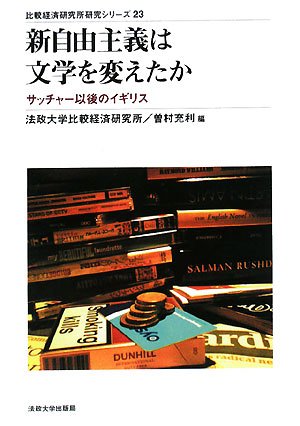16 0 0 0 新自由主義は文学を変えたか : サッチャー以後のイギリス
- 著者
- 法政大学比較経済研究所 曽村充利編
- 出版者
- 法政大学出版局
- 巻号頁・発行日
- 2008
- 著者
- 曽村 充利
- 出版者
- 英米文化学会
- 雑誌
- 英米文化 (ISSN:09173536)
- 巻号頁・発行日
- vol.26, pp.27-39, 1996
Charles Cotton was a close friend of Izaak Walton and wrote the second part of The Compleat Angler. It is not surprising that Walton and Cotton shared the common political belief and religious faith, royalist and Anglican. In this paper, it will be suggested that Cotton quite possibly was connected with the Great Tew Circle, an Anglican latitudinarian group, some of the chief members of which were Walton's close friends. Friendship between Walton and Cotton seems to have been long and strong, and the evidence of it is found in Cotton's verse, their epistles, and the second part of The Compleat Angler. Cotton was quite explicit about his zealous royalist opinions in his verses, and celebrated the King's return and the Restoration. Three members of the Great Tew Circle can be mentioned in relation to the life of Cotton. Clarendon, a member and the most influential politician of the Restoration England, was a friend of Cotton's father. Cotton also wrote that he had 'been favoured' by another member of the circle, Sheldon, who was a post-Restoration Archbishop of Canterbury. Lastly, in one of his poems, Cotton severely criticized Edmund Waller, an ex-member of the circle, for writing a panegyric on Oliver Cromwell.
- 著者
- 曽村 充利
- 出版者
- Faculty of Global and Interdisciplinary Studies, Hosei University
- 雑誌
- GIS journal : the Hosei journal of global and interdisciplinary studies (ISSN:21894159)
- 巻号頁・発行日
- vol.6, pp.43-134, 2020-03
This study will consider the relationship between George Herbert’s pastoral manual, The Country Parson (CP) and his Anglican via media. The text will be analyzed historically in relation to religion, politics, culture and society in early seventeenth-century England. CP is not a flat textbook but a well-conceived work drawing on literary genres with various voices and attitudes for identification and differentiation. As to religion Herbert can be categorized as ‘a modest conformist’ who is following Laudian uniformity in ritual and seems to take a conservative stance on controversial issues. Though the idea of hierarchy relies on patriarchy and ‘passive obedience,’ the sociological arguments that CP is ideological and political and a governmental treatise will be critically reviewed. Compared to the Puritan preachers obsessed with an inner self, CP broadly deals with ‘the outward appearance’ of a pastor, though Herbert’s inner self is expressed in the prayers. CP is intended to teach pastors about the importance of appearances in order to establish trust with the local people. The text tries to be in the middle of extremes: between ‘Schismatic’ and ‘Papist,’ appearances and an inner self, authoritarian and egalitarian, and sacred and secular. Therefore, a pastor is required to be ‘always moving and eternally variable.’
